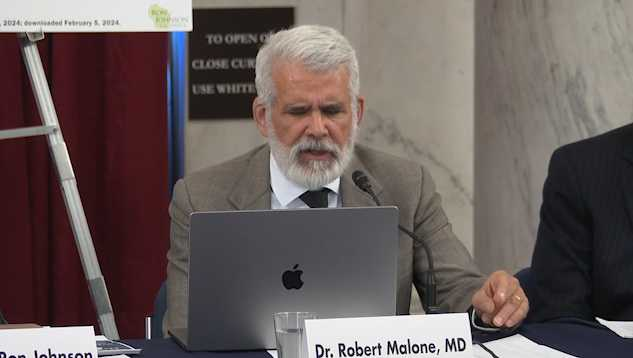Dr. Robert Malone, a Maryland licensed physician with over three decades of experience in biotech and biodefense, voiced significant concerns regarding the deployment and regulatory oversight of SARS-CoV-2 mRNA vaccine products. Addressing a panel, Dr. Malone criticized the emergency use authorization of these vaccines, citing a lack of adequate testing and transparency about patient risks and efficacy data.
Dr. Malone argued that the vaccines' rollout violated established patient informed consent requirements, a decision justified by flawed infection fatality rate models. He pointed out several issues with the genetic vaccine technology, including its classification, efficacy in preventing infection, and the potential for contributing to more resistant viral strains.
Leaving 25 years in mainstream media behind, I chose integrity over bias. Support my independent journalism for just $5 a month, with the freedom to cancel anytime. Together, we'll keep the truth accessible and unfiltered.
Highlighting the broader implications, Dr. Malone noted the vaccines' systemic distribution post-injection, contrary to initial claims of localization. He raised concerns about the toxic effects of the viral spike protein produced by the body, the lipid nanoparticles' intrinsic toxicity, and the presence of undisclosed synthetic mRNA and short DNA fragments, potentially affecting patients' genomes.
Dr. Malone's testimony underscored the lack of investigation into several critical aspects, such as the vaccines' potential for shedding, reproductive toxicity, and the presence of contaminants known to pose genomic risks. He reflected on the historical challenges of mRNA technology development, marred by political and financial interests, which had previously identified issues such as inflammation and inadequate immune responses.
Click here to watch the entire four hour hearing.
The dialogue also touched on regulatory oversight, with Dr. Malone expressing disappointment in the FDA's methodological choices and communication regarding vaccine safety. His concerns highlight a disconnect between early assurances of safety and the emerging data on vaccine distribution and potential adverse effects, calling for a reevaluation of the regulatory and development processes for such critical healthcare interventions.





















